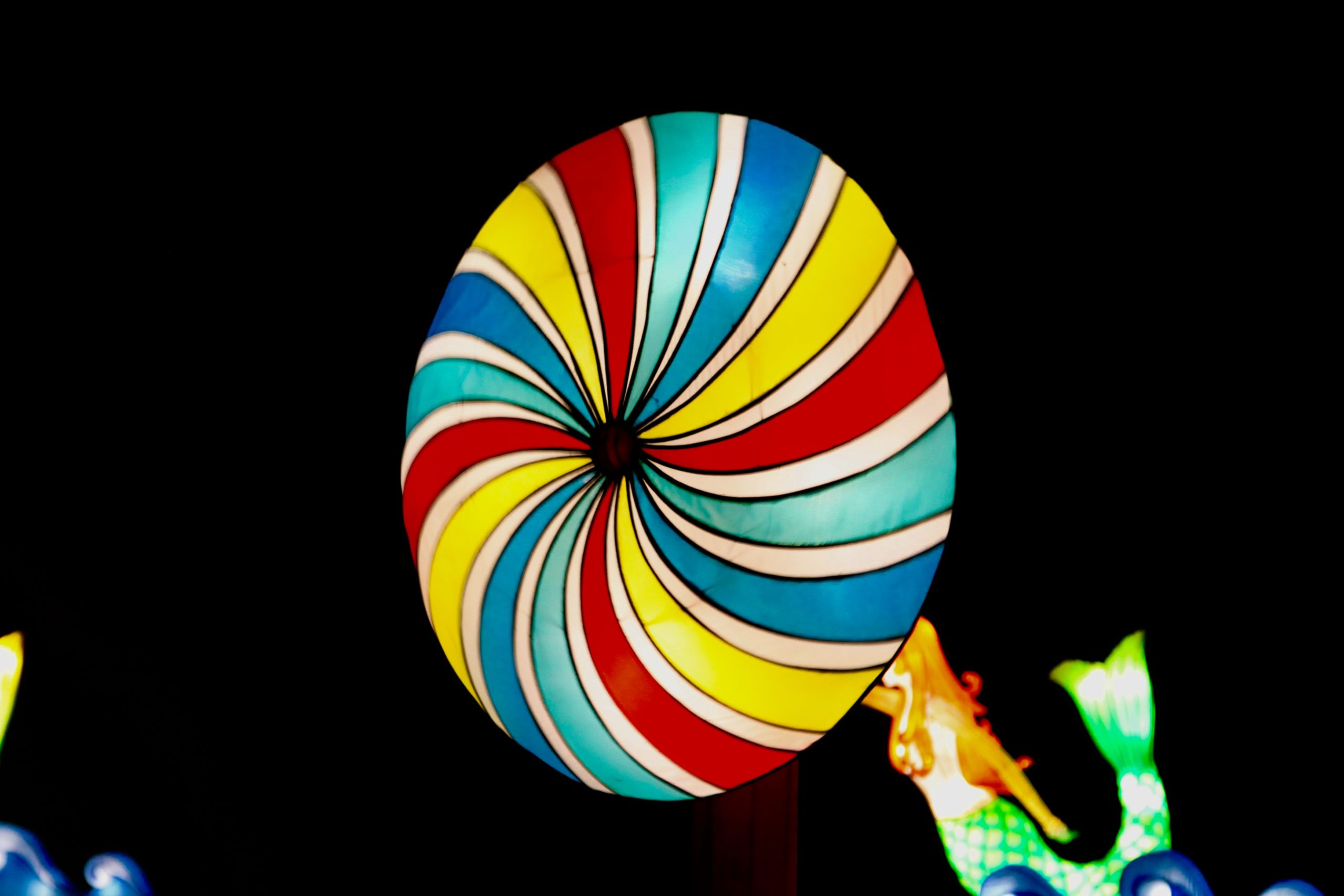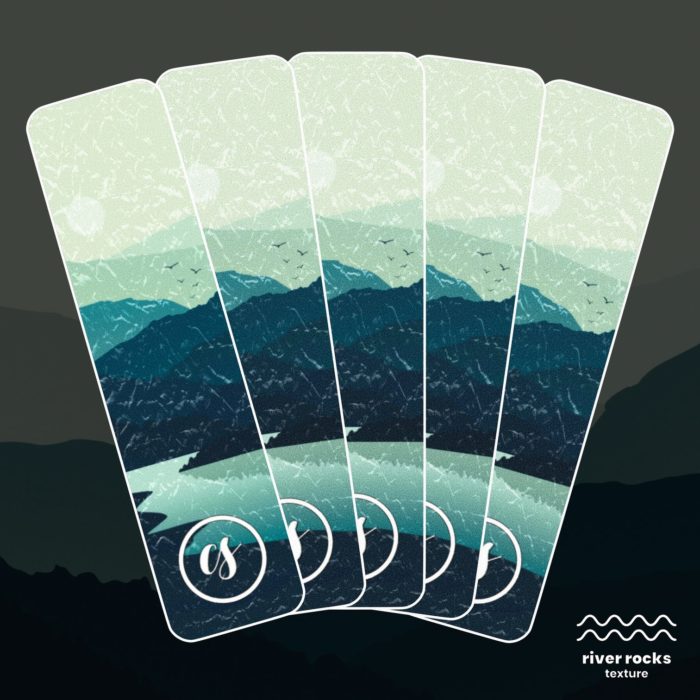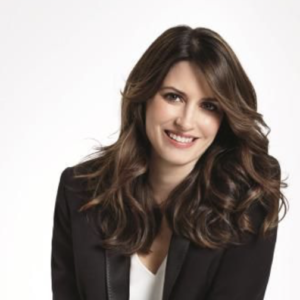It’s one thing to read about the signs, symptoms, and types of OCD, the overlap with other mental disorders, the theoreticals about how obsessions and compulsions can affect your life and career and relationships. It’s quite another to hear it in the unfiltered words of women who have the condition. We’ll say no more. Instead, they will.
Kat Hashway, 25, Teacher Assistant & Vlogger
Contamination Fears, Religious Scrupulosity, Sexual Obsessions
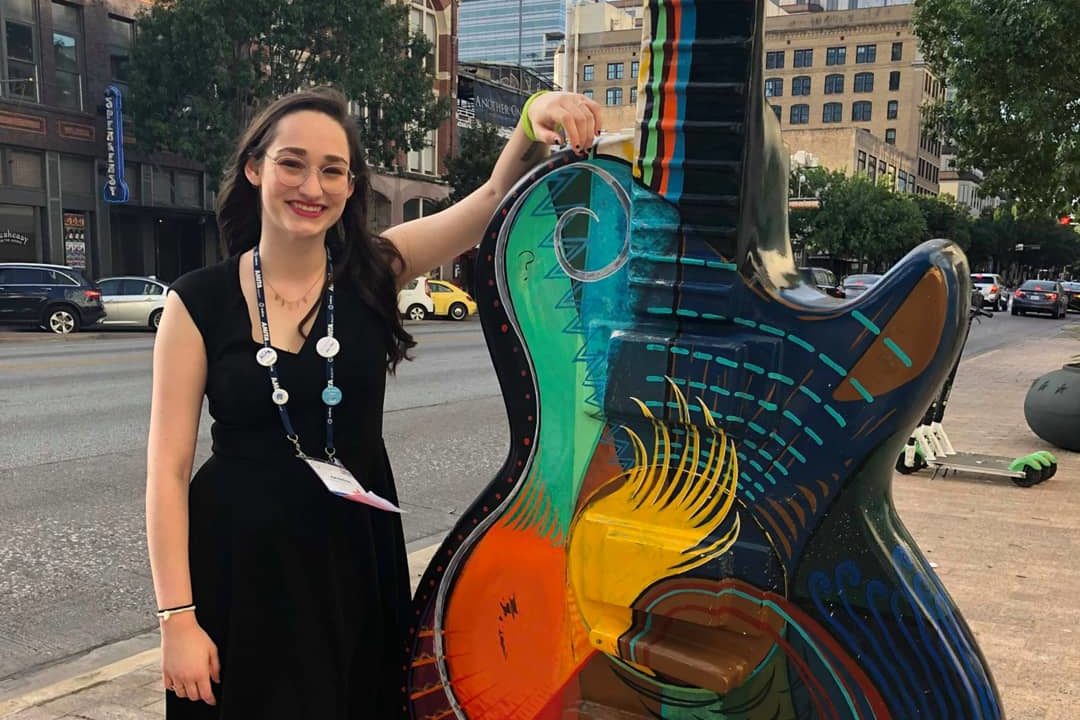
If her YouTube channel is any clue, we can only assume Hashway is a good teacher. Her videos don’t lecture, just refreshingly, openly, and sometimes humorously drop real talk about mental health.
Her OCD Type: “My OCD has bounced around since its onset at 15, but my main obsessions have always been centered on morality. The first obsessions that made me realize something was wrong were harm obsessions, where I would get vivid images of people harming me or me harming others. My worst obsession by far was religious scrupulosity, because it really allowed OCD to take my life away. I don’t struggle with either of those much now. The one I still struggle with is sexual obsessions. I worry about being attracted to people for whom I find it very taboo to be attracted to. For me, the worst is therapists, professionals, and authority-type figures. My sexual obsessions originally fixated on my (now) former psychiatrist.”
When She Realized She Had OCD: “Looking back, I can recognize symptoms I had as a child that were classic OCD. I was scared of germs, so I would avoid touching things I perceived to be germ-ridden. I worried that there were bombs or cameras in my stuffed animals, and if I felt a sensation on one side of my body I would have to repeat it on the other side (symmetry OCD). At the time, everyone knew I was an anxious kid but didn’t think it was anything more than generalized anxiety. I didn’t get diagnosed until my harm OCD started. When I told my therapist, she was concerned about my symptoms but did not know it was OCD. I ended up going to a psych ward and that’s where I was diagnosed.”

How OCD Affects Her Life: “When I have physical compulsions (most of my compulsions are mental), I can spend up to an hour doing the ritual. Typically, I have to repeat things until it ‘feels right’ in order to avoid a consequence, like being abandoned by God or never getting married. I often waste time doing little rituals throughout the day, too, which can lead to me being late for classes or work. Also, my perfectionism makes me want to be very thorough and deliberate with everything I do, even if the task does not require that kind of effort. That makes it hard for me to read books and complete homework or class projects. I tend to write and rewrite. Having this unnecessary pressure on a task leads me to procrastinate.
“My sexual obsessions have made it difficult, ironically, to see my psychiatrist. But they’ve also made it hard for me to know what my values are compared to OCD’s over-scrupulous nature. I’ve since realized I’ve never had the healthiest view of sexuality to begin with, so it was easy for OCD to latch onto something that was already a pet peeve for me (relationships with authority figures/older men). I didn’t realize I could have a thought without it having meaning. Thus, when I started having thoughts about losing control and acting out in an inappropriate manner, I thought it meant I secretly wanted to do those things. My compulsions here are mainly avoidance, seeking reassurance, and rumination. I can and do ruminate about what it would mean if I was attracted to my psychiatrist and if it would make me a bad person.”
Her YouTube Videos: “My goal with my videos is to raise awareness of what mental illness really is, promote recovery, decrease the stigma around mental illness, and create a space where people who struggle can feel less alone. I’ve spent most of my time doing YouTube as a psychology student. However, I’ve worked in a psychiatric facility with adolescents and that is my career goal. I want to help teenagers and kids get the help they need.”
On Religion and Mental Health: “In the Christian church, mental health can often be treated as though it is a spiritual issue or an attitude issue. If you tell some Christians about your illness, they will offer platitudes like ‘you just need to pray more’ and ‘give it up to God.’ At worst, they will infer you don’t have enough faith, taking medications is wrong, it’s demonic, or you did something to bring it on yourself.
“Every Christian I’ve met with OCD has prayed. They’ve pleaded with God; some have even endured the laying on of hands for healing or exorcisms. They can be some of the most Biblical, pious Christians I’ve met, and they still have mental illnesses.
“To say these things to someone struggling is incredibly hurtful and more often than not, scary for someone who has scrupulosity OCD. This is what I know: If you have OCD, these platitudes lead to more fear and rituals.
“If you have a mental illness that will not go away no matter how much you pray and seek God, therapy works for most people. It is agonizing to beg God to heal you and not see it happen (and I’ve been there), but often times God has our remedy right in front of us. He just wants us to work for it this time. Going through therapy has improved my life in ways I would have never imagined, but He knew what He was doing.”
On Speaking Out Publicly About Mental Health: “I have found people are often more kind and understanding than we imagine. I’ve had some really amazing experiences with old and new friends because my vulnerability makes them feel safe to be vulnerable, too. Not everyone needs a YouTube channel, but if you feel drawn to do something like that, I would highly recommend going for it! It has revealed to me my purpose in life, and the good experiences outweigh the bad ones by a long shot.”
Laura Silverman, 39, Design Firm Owner & Entrepreneur
Ruminating, Harm Thoughts, Checking, Anxiety + Substance Use Disorder
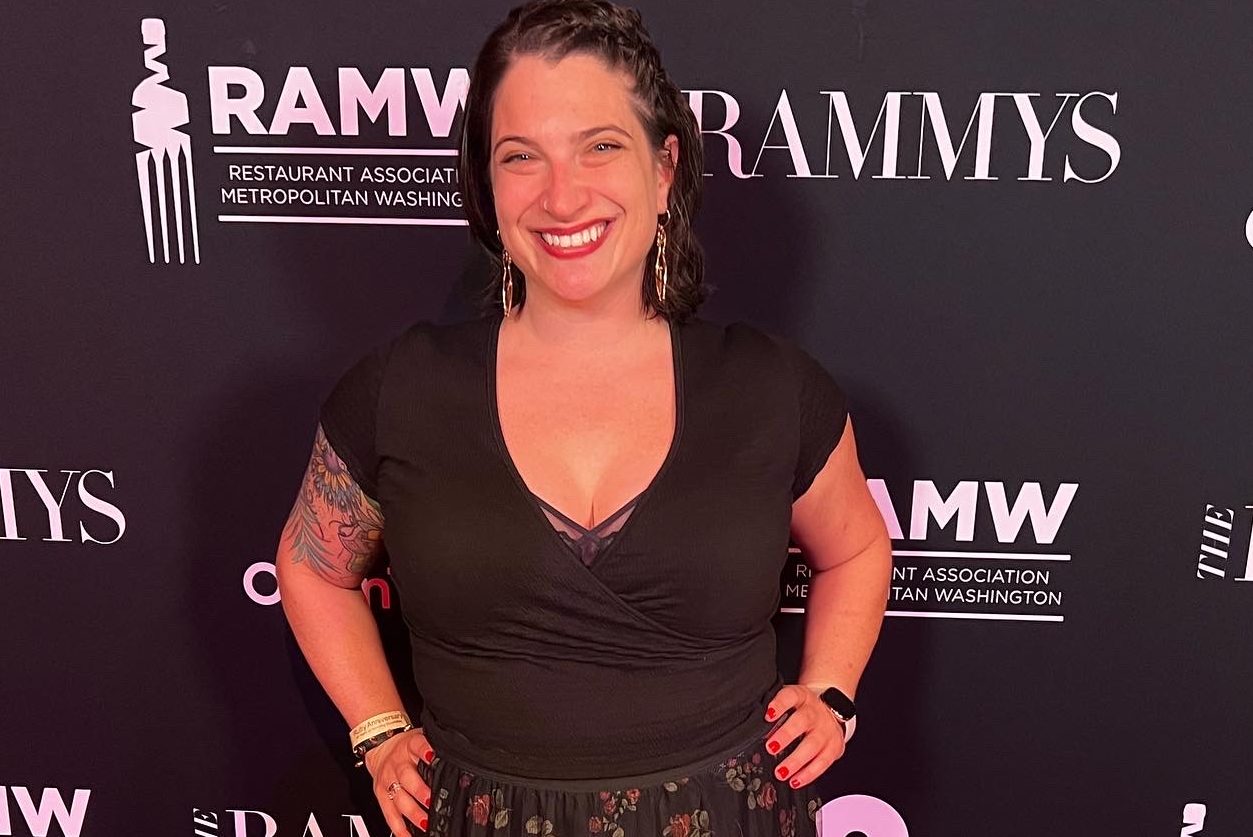
Silverman owns a boutique web design firm that focuses on, in her words, “helping the helper”: mental health therapists, mission-driven entrepreneurs, and the like. But that’s just her day job. If you’re sober or trying to get there, her other endeavors can provide an assist: Zero Proof Nation, a virtual platform covering the rise of non-alcoholic beverages; Booze Free in DC, a digital, no-alcohol travel guide for the Washington, D.C., area; and The Sobriety Collective, a sobriety and sober-curious resource hub.
Her OCD Type: “My OCD is a combo deal. Obsessions range from ruminating and about whether I turned oven/lights/faucets off and blew candles out/unplugged heated devices/locked doors…to sudden fear that I’ll harm myself or others by unintentionally driving myself into a median or fall into train tracks…to sending myself into a full-blown panic attack when thinking about my own death or the deaths of my loved ones…to unwanted sexual thoughts. It can be exhausting to live in my brain.”
Her OCD Compulsions: “Compulsions are often manifested silently—repeating phrases over and over (sometimes those phrases are to negate whatever my obsession is and then they turn into a new compulsion) and checking said oven/lights/faucets until it feels ‘right.'”
On OCD Remission: “My OCD often goes into remission—or hiding, really—and then I’ll feel free. But I know fully that it can come back and is often triggered by the most nonsensical, un-obvious turn of events. It just happens. and then I feel the mental anguish all over again.”
Knowing Thoughts Are Illogical: “People with OCD are completely aware that they have a mental disorder/chemical imbalance/brain misfiring. And that often causes us further distress because we’re so hyper aware of what’s going on.”
When She First Knew She Had OCD: “I was about 6 and realized I was swallowing my own saliva over and over and couldn’t figure out why or how to stop. My compulsions changed over the years. Sometimes I would play a certain chord on the piano after every single piece I practiced, no matter if it made musical sense or not. Sometimes I would knock my forehead (as I said a certain ‘mantra’ mentally) as a way to prevent harm. I would worry about things harming more often than my friends and family did—and it wasn’t until I was in college taking a psychology course that I realized that a) there was a name for this thing, and b) I wasn’t alone. For years I feared I was the only person in the world with thoughts so disturbing and the inability to stop certain ‘habits.'”
The Connection Between Her OCD and Her Sobriety: “When I was actively drinking alcohol, I was masking symptoms by numbing out. My brain was so loud—and drinking quieted the noise. I had anxiety and panic attacks, and drinking made me feel less on edge. The panic would come back in full force the following day, post-blackout. The OCD never went away. But I had a lot of undiagnosed mental ‘gunk’ that I only really started to uncover and peel back the layers of once I embarked on my journey to get sober in 2007. I knew, in my mind and my heart, that I had OCD and anxiety, but it was only diagnosed by a medical professional once I got real about why I was drinking.
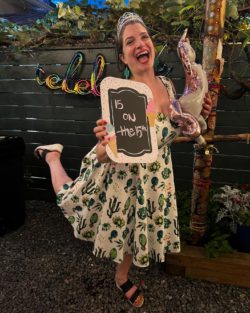
“I’ve been a booze-free babe for 15 years now. I’m so filled with joy about my sobriety and the emotional and physical damage I’ve reversed. About my relationships with family, friends, and self-improvement. My recovery is very much a daily thing though, because ‘one day at a time’ applies to my mental health and wellbeing more than anything else. Some days are wonderful and some days are awful and it’s learning to breathe through the pain and discomfort and seek help for when I’m really struggling. It’s about sharing my story to help others—and myself.”
On Stigma at Work: “I feel very lucky that most of my OCD has gone unnoticed as an adult. But there have been times early in my professional career where people ‘found me out’ and uncovered some of my compulsions in a public space; those times have been mortifying and those people are no longer in my life.
“My mental health hasn’t prevented me from advancing in jobs. That being said, I almost didn’t start The Sobriety Collective in April of 2015 because at the time I worked for a federal contractor and didn’t want to be ostracized or lose my security clearance. But then I thought—hey, I’ve already passed a very tedious, invasive, thorough background investigation, so what I have to say these people already know. So I went for it.
“I am now my own boss and support clients doing important work in the recovery, wellness, and non-alcoholic beverages spaces. I believe my lived experience humanizes me and makes me even more valid. My struggles and my triumphs make me who I am.”
Morgan Rondinelli, 27, Writer & Library Assistant
Hyper-Responsibility OCD + Borderline Personality Disorder
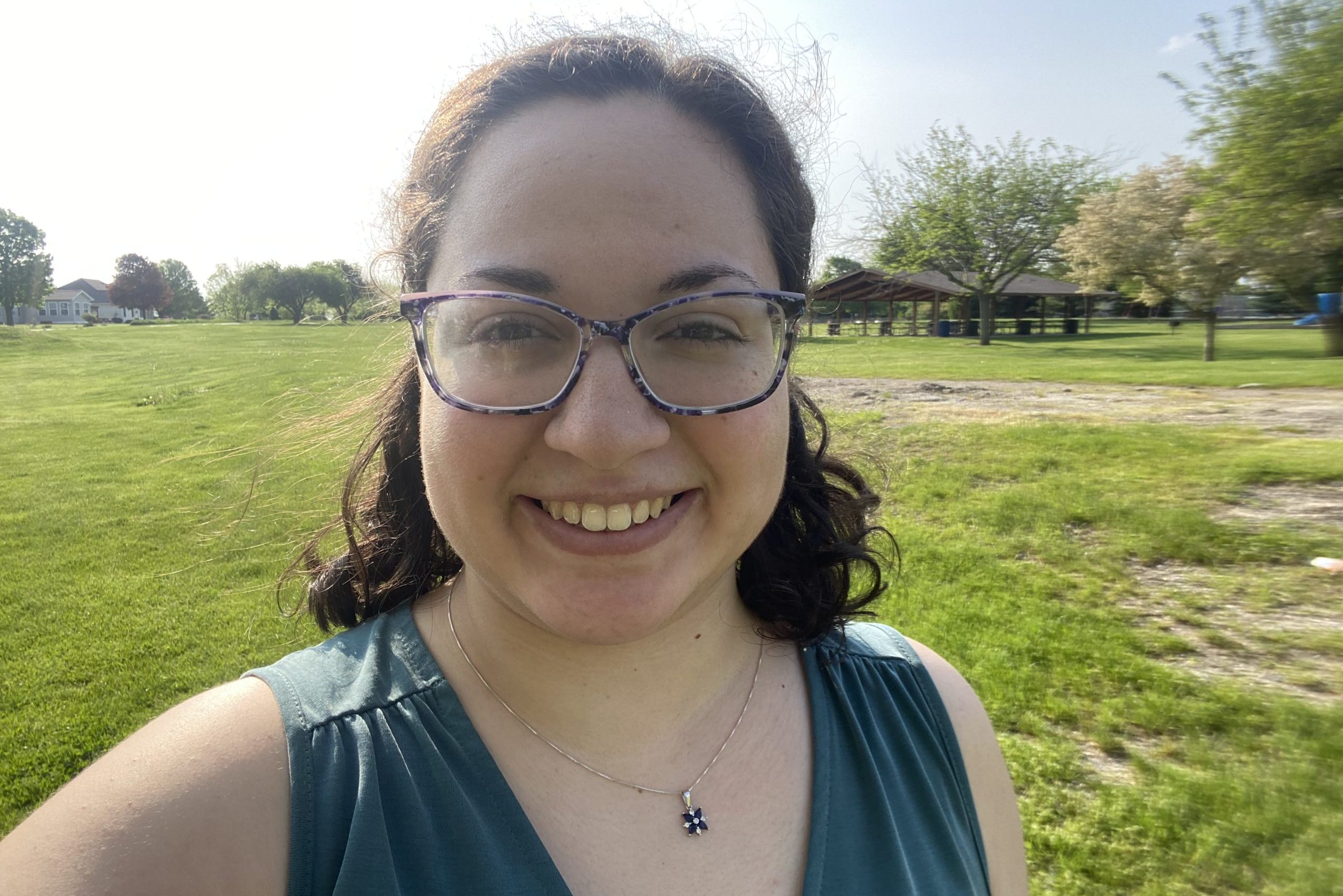
Rondinelli is one half of the duo that runs Not Alone Notes, a nonprofit that sends free handmade notes to people with OCD and their caregivers to “remind them they aren’t alone, encourage hope, and dispense resources,” says Rondinelli. On the org’s site, you’ll find a “You Are Not Alone” Spotify playlist, where Rondinelli’s love of musicals shows up with songs like Annie’s “You’re Never Fully Dressed Without a Smile” and Dear Evan Hansen’s “You Will Be Found.”
Her OCD Type: “I’m fortunate that through years of exposure and response prevention (ERP) therapy, my OCD is well-maintained. The main fears I have now involve my cat. I am afraid something will happen to her while I’m not home and can’t rescue her, or that she will get out and get hurt. For a double whammy, I’m afraid I will leave the stove on, accidentally cause a fire, and be responsible for her death. Before this, OCD largely affected my ability to read because I would reread so compulsively. With an OCD specialist, I learned to do exposures and gradually reduce my rereading compulsions. I’ve also had ‘flavors’ involving fears of my thoughts affecting loved ones’ safety and compulsions involving tapping, counting, and lots more.”
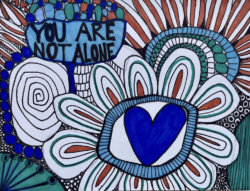 On Not Alone Notes: “What we write generally talks about feeling less alone, having hope, and doing things you enjoy. We also ask their favorite color and age, so we can choose or make a card just for them. We then write an encouraging message on the card and mail it along with a list of resources.”
On Not Alone Notes: “What we write generally talks about feeling less alone, having hope, and doing things you enjoy. We also ask their favorite color and age, so we can choose or make a card just for them. We then write an encouraging message on the card and mail it along with a list of resources.”
On OCD as the “Socially Acceptable” Mental Illness: “As someone with both OCD and BPD [borderline personality disorder], I do feel a difference with how. the two are generally perceived. Nonetheless, both are largely misunderstood. OCD is often seen as ‘cute’ and no big deal. Individuals with BPD are often seen as ‘bad’ and manipulative. At the end of the day, an illness is an illness, and pain is pain. All deserve understanding and compassion.”
Molly Fishback, 28, Teacher & Artist
Perfectionism Around Social Situations
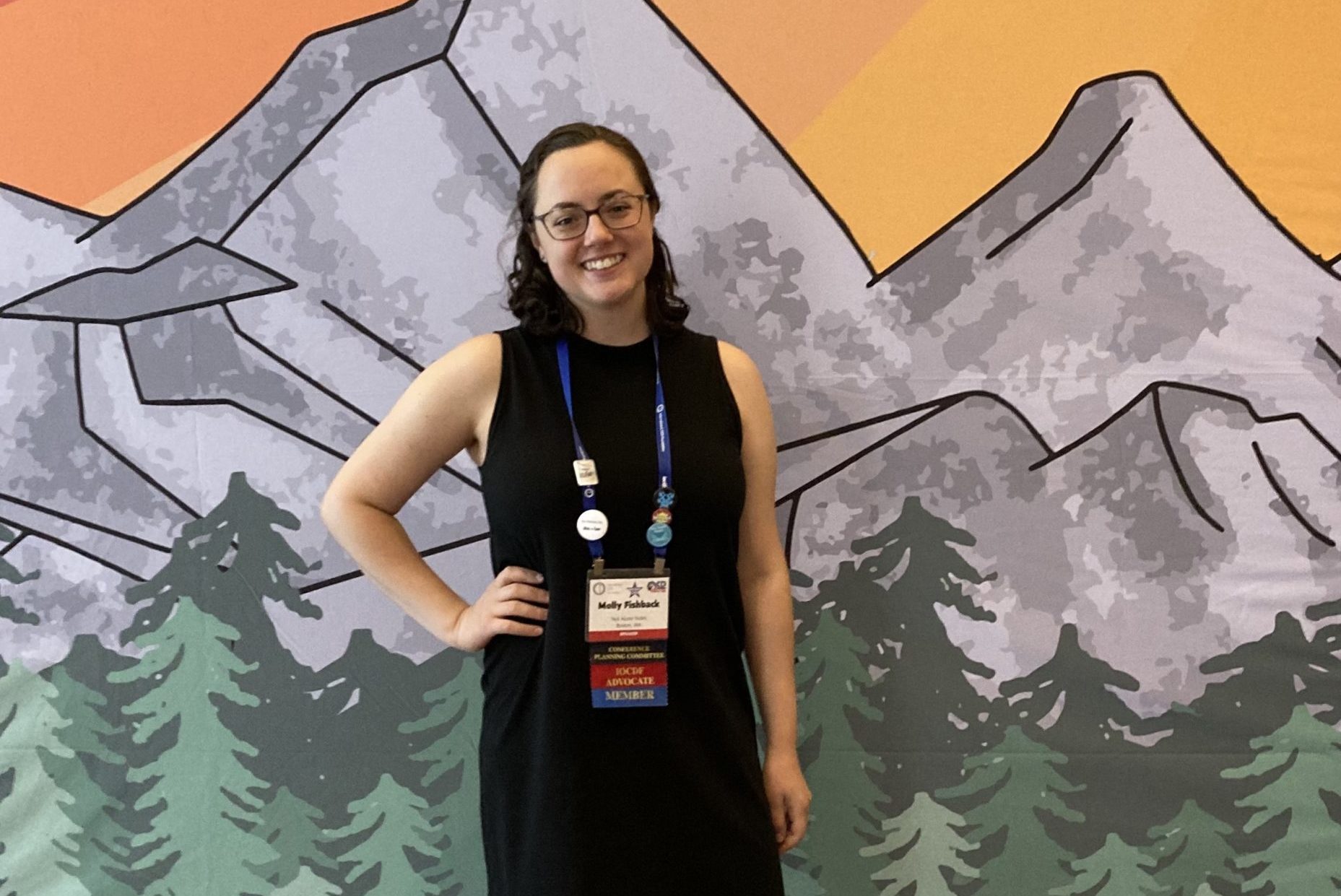
The other founder of Not Alone Notes, Fishback handprints most of the artwork. “Not Alone Notes has turned into a hobby that I take great pride in,” she says. “I love being able to connect my art into the mental health community. It is also wonderful to see how one note can make a huge difference in someone’s life.” They’ve now mailed more than 2,000 notes to all 50 states and 39 countries.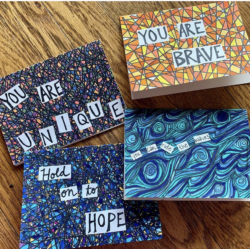
Her OCD Type: “My social anxiety likes to latch onto my OCD. One way it does is through perfectionism. An example of this is worrying about if what I said when spending time with a friend will offend another person. This can cause me to later, after hanging out, review the conversation to check if I said anything to offend them. This thought pattern can also happen with making mistakes. It can look like: If I make a mistake, I have therefore embarrassed myself, and then what will the other person think of me?
“One way I work on this is not giving the thoughts attention when they arise. No one can control their thoughts, but when I notice the thought, I can redirect my attention to something else, such as art, and focus on that.”
What People Don’t Get: “People don’t understand that OCD can interfere with someone’s life so much in a debilitating way. People who don’t know about OCD think of it in a positive light (the books are in a perfectly straight line), when in reality it causes so much stress and consumes our days. When people think of OCD, they focus on the compulsions, which is what we ruminate about for hours.”
On OCD as a “Lesser” Mental Health Condition: “I think most mental health illnesses are misunderstood by the public. It is hard to empathize with someone with a certain kind of mental illness because it is hard to explain to someone who is not going through it. There are actual chemicals inside the brain that aren’t working correctly, and it is different from being physically sick.
“I am not sure where the misconception of OCD came from, but somehow it was twisted into being a positive trait. OCD is not a trait; it is an illness and should be taken as seriously as other illnesses. People would never lightly say ‘I feel like/I’m so…’ about a physical illness. OCD is an illness that commonly goes undiagnosed because people feel shame and embarrassment about their thoughts and believe it is part of them. No matter what the mental health illness is, it causes great distress to the person who suffers with it and should be taken seriously.”
Click here to request a Not Alone Note.
